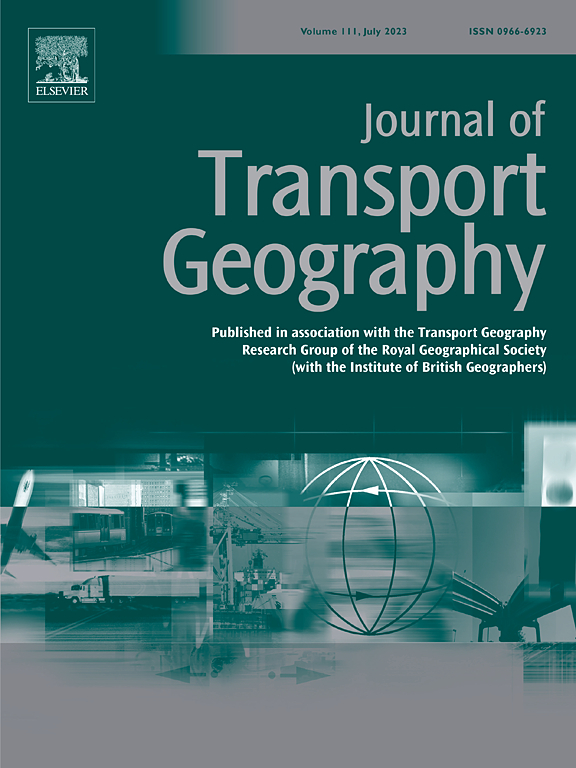通过日常活动-出行模式探索空气污染、生活满意度和心理健康之间的复杂关系:以北京郊区住宅社区为例
IF 6.3
2区 工程技术
Q1 ECONOMICS
引用次数: 0
摘要
空气污染与主观幸福感和心理健康的关系是环境科学、公共卫生、心理学和健康地理学等领域越来越多讨论的话题。然而,短期(活动/旅行插曲和瞬间)到中期(日和周)空气污染暴露与长期(月和年)主观幸福感和心理健康的关系尚未得到充分研究。利用2017年11月至2018年1月在北京梅河源居民社区进行的活动-旅行日记调查,我们通过日常活动-旅行模式调查了日水平环境和感知空气污染暴露与日水平满意度、长期生活满意度和心理健康的关系。在这里,我们发现,从长期来看,人们的生活满意度和心理健康呈负相关,主要是通过降低日水平满意度来实现的,而非日水平的环境PM2.5暴露。在人们日常活动和出行模式的属性中,公共交通持续时间与生活满意度直接正相关,通过日级满意度和日级感知空气污染建立间接联系。然而,没有任何活动-旅行模式变量与心理健康有统计学显著相关。此外,生活环境与生活满意度的关系比与心理健康的关系更强,直接影响和间接影响都与日水平感知空气污染和日水平满意度有关。本文章由计算机程序翻译,如有差异,请以英文原文为准。
Exploring the complex relationships between air pollution, life satisfaction and mental health through the lens of daily activity-travel patterns: The case of a suburban residential community in Beijing
The association of air pollution with subjective wellbeing and mental health is a topic of growing discussion in the fields of environment science, public health, psychology and geography of health. However, short-term (activity/trip episode and momentary) to medium-term (day and week) air pollution exposure, however, has not been fully studied in relation to long-term (month and year) subjective wellbeing and mental health. Using an activity-travel diary survey conducted in the Meiheyuan residential community, Beijing between November 2017 and January 2018, we investigated the associations of day-level ambient and perceived air pollution exposure with day-level satisfaction, long-term life satisfaction and mental health through the lens of daily activity-travel patterns. Here we found that day-level perceived air pollution, rather than day-level ambient PM2.5 exposure, is negatively related to people's life satisfaction and mental health in the long term, primarily by reducing day-level satisfaction. Among attributes of people's daily activity and travel pattern, public transport duration is directly and positively associated with life satisfaction, and indirect connections are established through day-level satisfaction and day-level perceived air pollution. However, no activity-travel pattern variables are statistically significantly related to mental health. Moreover, life circumstances have a stronger association with life satisfaction than with mental health, with both direct effects and indirect effects related to day-level perceived air pollution and day-level satisfaction.
求助全文
通过发布文献求助,成功后即可免费获取论文全文。
去求助
来源期刊

Journal of Transport Geography
Multiple-
CiteScore
11.50
自引率
11.50%
发文量
197
期刊介绍:
A major resurgence has occurred in transport geography in the wake of political and policy changes, huge transport infrastructure projects and responses to urban traffic congestion. The Journal of Transport Geography provides a central focus for developments in this rapidly expanding sub-discipline.
 求助内容:
求助内容: 应助结果提醒方式:
应助结果提醒方式:


